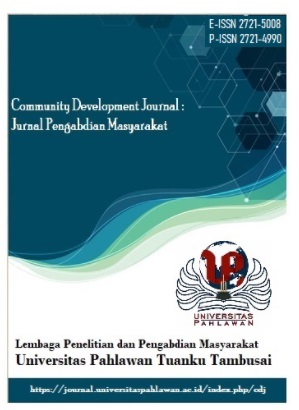EXPLORING THE EFFECTIVENESS OF GAMIFICATION IN ENGLISH LANGUAGE LEARNING
DOI:
https://doi.org/10.31004/jrpp.v7i4.37470Keywords:
Gamifikasi, Pembelajaran Bahasa Inggris, Motivasi Siswa, Keterlibatan, Pendidikan InovatifAbstract
Penelitian ini bertujuan untuk mengeksplorasi efektivitas gamifikasi dalam pembelajaran Bahasa Inggris di kalangan siswa kelas IX di SMA Negeri 1 Gamping. Gamifikasi, yang melibatkan penggunaan elemen permainan dalam konteks pendidikan, diharapkan dapat meningkatkan motivasi dan keterlibatan siswa. Melalui pendekatan kualitatif, data dikumpulkan dari 20 siswa menggunakan kuesioner yang terdiri dari pertanyaan terbuka dan tertutup. Hasil penelitian menunjukkan bahwa 80% siswa merasa lebih termotivasi untuk belajar Bahasa Inggris setelah menerapkan gamifikasi, dan 90% merasa proses belajar menjadi lebih menyenangkan. Gamifikasi tidak hanya meningkatkan kepercayaan diri siswa dalam berbicara Bahasa Inggris, tetapi juga membantu mereka memahami materi dengan lebih baik. Penelitian ini menyimpulkan bahwa gamifikasi adalah metode inovatif yang efektif dalam meningkatkan kualitas pembelajaran Bahasa Inggris di tingkat sekolah menengah.References
Asanza, T. (2024). Gamification as a didactic motivator in low-resource public english as a foreign language (efl) classrooms in ecuador. Ciencia Latina Revista Científica Multidisciplinar, 8(2), 5391-5402. https://doi.org/10.37811/cl_rcm.v8i2.10951
Cruz, K. M. L. L., Noa, S., Turpo-Gebera, O., Montesinos-Valencia, C. C., Bazán-Velasquez, S. M., & Postigo, G. S. P. (2023). Use of gamification in english learning in higher education: a systematic review. Journal of Technology and Science Education, 13(2), 480. https://doi.org/10.3926/jotse.1740
Díaz, I. (2023). Gamification as a multimedia methodology strategy in the english language teaching process for efl learners.. https://doi.org/10.5772/intechopen.109716
Dicky, A., Fen, B., K.K.S, H., Sangen, H., Raca, N., & Jee, N. (2023). Time argonaut: a game to practice telling time in english for rural school students. Journal of Cognitive Sciences and Human Development, 9(1), 236-249. https://doi.org/10.33736/jcshd.5487.2023
Hürsen, Ç. and Bas, C. (2019). Use of gamification applications in science education. International Journal of Emerging Technologies in Learning (Ijet), 14(01), 4. https://doi.org/10.3991/ijet.v14i01.8894
Je-Young, L. and Baek, M. (2023). Effects of gamification on students’ english language proficiency: a meta-analysis on research in south korea. Sustainability, 15(14), 11325. https://doi.org/10.3390/su151411325
Khatoon, S. (2023). Exploring the impact of gamification on language learning performance among intermediate college students: the role of motivation, engagement, and self-reliance. Pakistan Languages and Humanities Review, 7(II). https://doi.org/10.47205/plhr.2023(7-ii)24
Li, R. and Li, J. (2022). Applying gamification in english learning.. https://doi.org/10.2991/assehr.k.220504.490
Puspitasari, I. (2023). Implementation of gamification on learning motivation: a meta-analysis study. International Journal of Progressive Sciences and Technologies, 40(1), 356. https://doi.org/10.52155/ijpsat.v40.1.5596
Romero-Rodríguez, L., Ramí¬rez-Montoya, M., & González, J. (2019). Gamification in moocs: engagement application test in energy sustainability courses. Ieee Access, 7, 32093-32101. https://doi.org/10.1109/access.2019.2903230
Sailer, M. and Homner, L. (2019). The gamification of learning: a meta-analysis. Educational Psychology Review, 32(1), 77-112. https://doi.org/10.1007/s10648-019-09498-w
Suwandani, L. (2024). Analysis of the role of gamification in education: its impact on student motivation. Proceedings of ICE, 2(1), 153-159. https://doi.org/10.32672/pice.v2i1.1332
Zhang, S. and Hasim, Z. (2023). Gamification in efl/esl instruction: a systematic review of empirical research. Frontiers in Psychology, 13. https://doi.org/10.3389/fpsyg.2022.1030790
Downloads
Published
How to Cite
Issue
Section
License
Copyright (c) 2024 Hendra Sudarso

This work is licensed under a Creative Commons Attribution-ShareAlike 4.0 International License.






